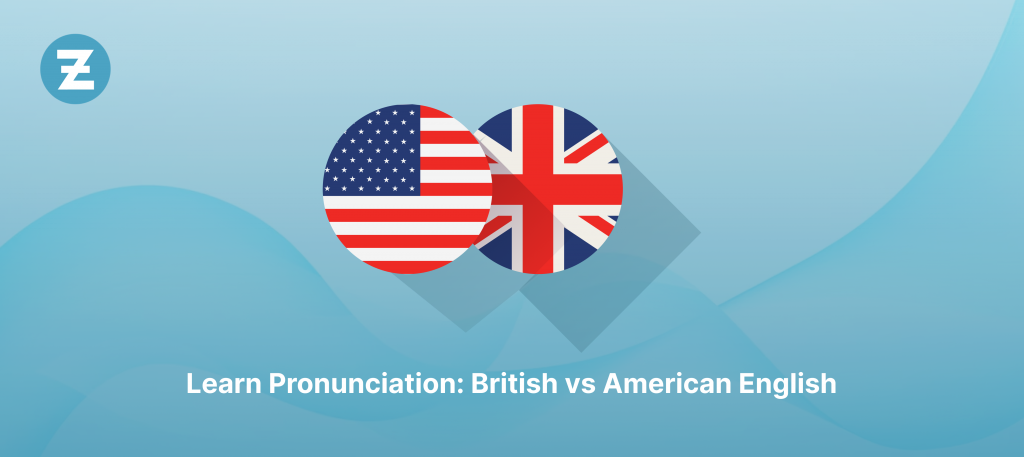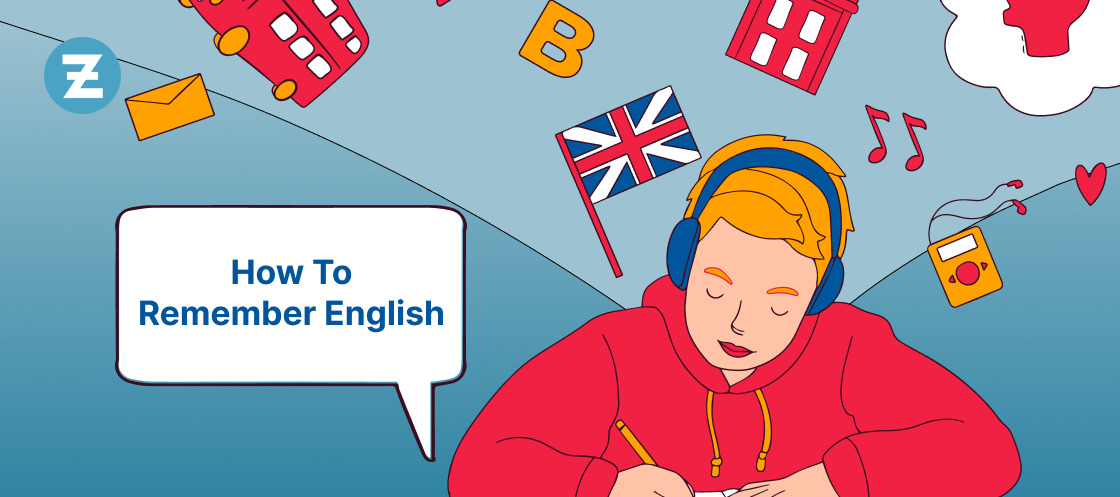Are you having difficulty comprehending a person with a British intonation when communicating in English? We will look into the disparities between British and American English, beginning with the utterance of vowels and consonant sounds in each dialect of English to the articulation of regular words.
Historical background behind British and American English
The English Language has improved a lot since its roots in the 5th century in the British Isles. For centuries, the language has been evolving and influenced by other languages, such as Norman French and other languages of immigrants who settled in America.
Since the fifth century, the British Isles have been home to the original form of English – British English – which has been spoken there ever since. After the Norman Conquest of 1066, French began to influence the language, which is why British English has a unique grammar, spelling, and vocabulary compared to American English.
Since then, the language has evolved significantly, with new words and expressions being introduced while others have become outdated. Over the years, the additions of immigrants who settled in America have enriched and improved the language. The immigrants brought their language and culture, which shaped the language we use today.
Individuals from all corners of the globe communicate in English, which has been progressively changing over time. As a global language, it is an essential communication tool in business, travel, and other fields.
By contrast, American English is a variant of English that has developed from British English but has been strongly impacted by the tongues of the people who moved to the United States. Virginia and Massachusetts were the first English-speaking colonies established in the United States, founded in the early 1600s.1 This is why American English has unique features like grammar, spelling, and vocabulary.
By contrast, American English is a variant of English that has developed from British English but has been strongly impacted by the tongues of the people who moved to the United States. Virginia and Massachusetts were the first Engliies of the English language are so dissimilar despite sharing the same ancestor.
Differences in vocabulary and pronunciation of American English and British English
There are several English dialects, each with its own distinct collection of phrases and idioms and a sizable number of terms with distinctive pronunciations or meanings.
Many words mean something different in each dialect. For instance, a huge vehicle for transporting goods is called a “truck” in American English, whereas a “lorry” is used in British English. In the US, “apartment” is more common than “flat” when referring to a living rental space, particularly in American English.
Likewise, how words are pronounced can vary greatly between the two dialects. For example, in
In American English, the “r” sound is pronounced more prominently, while in British English, it is often nearly silent. Additionally, there are also differences in stress and intonation patterns. In British English, the second syllable of a word is often emphasized, while in American English, the first syllable tends to be more heavily accented.
One of the biggest differences between American and British English pronunciation is using different vowel sounds. Words such as “dance” have different pronunciations in the two varieties of English. How the “a” sound in “dance” is pronounced differs between American and British English. In American English, the pronunciation of this sound is similar to the “a” in “cat,” whereas in British English, it is more like the “a” in “father.”
Read Also: Difference Between American and British English
Pronunciation of common words in British English
Pronunciation of vowel sounds
As English is widely spoken worldwide, there are numerous regional variations. One major difference between British and American English is the pronunciation of certain words.
The letter “A” is pronounced differently in English depending on the word. In British English, it is usually pronounced like the “a” in “cat,” as in the words “bath” and “path.” However, in some words, such as “dance” and “chance,” it is pronounced like the “a” in “father.”
The letter “E” is another sound with a different pronunciation in British English. In British English, it is usually pronounced like the “e” in “pet,” as in the word “set.” However, in some words, such as “herb” and “term,” it is pronounced like the “u” in “fur.”
The letter “I” is usually pronounced like the “i” in “sit,” as in the word “bit.” However, in some words, such as “bird” and “girl,” it is pronounced like the “u” in “fur.”
Finally, the letter “O” is also pronounced differently in British English. In general, it is pronounced like the “o” in “hot,” as in the word “not.” However, in some words, such as “boat” and “goat,” it is pronounced like the “oa” in “coat.”
Examples of words with different vowel sounds
In British English, many words have different vowel sounds than in American English. For instance, in American English, the word “bath” is pronounced with the same “a” sound as in “father,” but in British English, the word is pronounced with an “a” sound similar to that in “cat.” Similar to how the word “cat” sounds in British English, the word “dancing” has an “a” sound that sounds like “father” in American English.
British English pronounces the letter “o” like “got” when speaking the phrases “goat” and “boat,” but American English pronounces the letter “oa” like “coat.” Similar to how American English pronounces “fur,” British English pronounces “bird” with a I sound that sounds like “sit.”
Finally, the British English phoneme for “pool” is the “oo,” which sounds like “cool,” while American English has the “u,” which sounds like “hut.”
Pronunciation of consonant sounds
The “T” sound is often pronounced more like a “ch” sound in British English, notably at the end of a word or before a consonant. Examples include the word “better,” pronounced “beh-chuh” in British English.
The “R” sound is usually pronounced with less emphasis in British English than in American English. It is particularly the case at the end of words, where the “r” sound is often barely audible.
The “H” sound is also usually softer in British English than in American English. An example is how “house” is pronounced as “owned” in British English.
The “S” and “Z” sounds are also less sharp and pronounced, with less emphasis in British English than in American English. The difference between the two sounds is often subtle.
These are just some of how the pronunciation of words differs between British English and American English. It’s important to remember that there are many variations and dialects of English, and these pronunciations may not be true in all cases.
Examples of words with different consonant sounds
Many of these words – such as water, car, herb, and leisure – are usually pronounced with a “ch,” “ah,” “h,” and “EZ” sound, respectively, in British English.
Let’s look at how words with these “-er” endings are pronounced differently in British and American English.
Water
In British English, the “t” in “water” is pronounced like a “tch” sound, making it sound more like “waw-chuh.” It is quite different from the American pronunciation of “wah-tuh.”
Car
In British English, the “r” in “car” is usually pronounced less certainly, making it sound more like “cah.” This word is typically pronounced in American English with a hard “r” sound.
Herb
In British English, the “h” in “herb” is pronounced, whereas, in American English, it is often silent, making it sound more like “erb.”
Leisure
In British English, the “s” in “leisure” is pronounced with less emphasis, making it sound more like “lehz-yuh.” This word is usually pronounced in American English with a sharp “s” sound.
Garage
In British English, the “g” in “garage” is often pronounced like a “j” sound, making it sound more like “ja-rahj.” This word is usually pronounced in American English with a hard “g” sound.
Pronunciation of common words in American English
Pronunciation of vowel sounds (H3 Header)
Let’s start with the letter ‘A.’ In American English, the ‘a’ sound is usually pronounced like the ‘a’ in ‘father,’ as in the words’ bath’ and ‘path.’ But in some regions and dialects, such as the Northeast, it is pronounced more like the ‘a in ‘cat.’
The letter ‘E’ is another one with different pronunciations. In American English, the ‘e’ sound is typically pronounced like the ‘e’ in ‘pet,’ as in the word ‘set.’ But in some regions and dialects, such as the Northeast, it is pronounced more like the ‘i’ in ‘bit.’
The ‘I’ sound is standard in American English, with the ‘i’ sound pronounced like the ‘i’ in ‘sit,’ as in the word ‘bit.’
The ‘O’ sound is usually pronounced like the ‘o’ in ‘hot,’ as in the word ‘not.’ But in some regions and dialects, such as the South, it is pronounced more like the ‘ah’ sound in ‘father.’
Finally, there’s the ‘U’ sound. In American English, the ‘u’ sound is typically pronounced like the ‘u’ in ‘hut,’ as in the word ‘but.’
Examples of words with different vowel sounds
Learning to distinguish between the two can be a bit tricky, particularly when it comes to vowel sounds. To help you out, here is a quick guide to some of the most common words with different British and American English pronunciations.
First, let’s talk about the word “bath.” The letter “a” in “bath” is typically pronounced in American English like the letter “a” in “cat,” making the word sound more like “baath.” The pronunciation sounds more like “baath” in British English, where it is more similar to the “a” in “father.”
The following word is “set.” Typically, in American English, the “e” sound in “set” is pronounced similarly to the “e” in “pet,” resulting in a pronunciation that sounds like “seht.” However, in British English, the pronunciation is closer to the “e” sound in “bed,” giving it a sound more like “seht.”
The word “bit” has a different British and American English pronunciations. In American English, the “i” in “bit” is pronounced like the “i” in “sit,” making it sound more like “bit.” In British English, the pronunciation is closer to the “i” in “hit,” sounding more like “bite.”
The same is true for the word “not.” In American English, the “o” in “not” is usually pronounced like the “o” in “hot,” making it sound more like “naht.” In British English, the pronunciation is closer to the “o” in “dot,” sounding more like “note.”
Finally, we have the word “but.” In American English, the “u” in “but” is usually pronounced like the “u” in “hut,” making it sound more like “buht.” In British English, the pronunciation is closer to the “u” in “put,” sounding more like “boot.”
Pronunciation of consonant sounds
The “R” Sound
In American English, the “R” sound is usually more emphasized than in British English, with the tongue curling up towards the roof of the mouth. It is especially noticeable in words like “car” and “hard.”
The “T” Sound
In American English, the “T” sound is often more emphasized than in British English, making it sound more like a “D” sound. For example, “water” might be pronounced as “wadder” in American English.
The “H” Sound
In American English, the “H” sound is usually pronounced more distinctly than in British English, with a stronger puff of air coming from the mouth.
The “T” and “D” Sounds Between Vowels
In American English, the “T” and “D” sound between vowels are often pronounced as a soft “D” sound. For example, the word “ladder” might be pronounced as “lad-der” in American English.
The “L” Sound
In American English, the “L” sound is often pronounced with the tongue touching the roof of the mouth, making it sound more like a “W” sound.
Examples of words with different consonant sounds
First, let’s take a look at the word “water.” In American English, the “t” sound in “water” is often pronounced as a soft “d” sound, making it sound more like “wadder.” In British English, the “t” sound is pronounced normally, making it sound more like “water.”
Second, let’s take a look at the word “butter.” In American English, the “t” sound in “butter” is often pronounced as a soft “d” sound, making it sound more like “budder.” In British English, the “t” sound is again pronounced as it normally is, making it sound more like “butter.”
Third, let’s look at the word “car.” In American English, the “r” sound in “car” is often pronounced more certainly, with the tongue curling up towards the roof of the mouth. In British English, the “r” sound is usually pronounced more like a trill, with the tongue tapping against the roof of the mouth.
Fourth, let’s examine the word “hard.” In American English, the “r” sound in “hard” is often pronounced more certainly, with the tongue curling up towards the roof of the mouth. In British English, the “r” sound is often pronounced more softly, with the tongue tapping against the roof of the mouth.
Finally, let’s consider the word “herb.” In American English, the “h” sound in “herb” is usually pronounced more distinctly, with a stronger puff of air coming from the mouth. In British English, the “h” sound is often pronounced more softly, with the tongue tapping against the roof of the mouth.
Read Also: Common Mistakes in English That Every Learner Makes
Common mistakes made by British and American English speakers
Mispronunciation of words
One of the most common mistakes seen between British and American English speakers is mispronouncing words with different pronunciations in the other dialect. Examples include the word ‘schedule,’ pronounced with a ‘sh’ sound in American English but with an ‘sk’ sound in British English. This can lead to confusion in conversations between British and American English speakers as certain words are pronounced differently.
Spelling differences
Another common mistake British and American English speakers make misspelling words with different spellings in the other dialect. A good example is the word ‘color,’ which is spelled with a ‘u’ in British English in contrast to the American English spelling of ‘color.’ Such spelling differences can be difficult to remember, leading to misunderstandings if not considered.
Different meanings of words
British and American English words may have different meanings in addition to variations in spelling and pronunciation. It is particularly true for colloquialisms and slang, which might radically vary across the two languages. For instance, in British English, the word “bobby” refers to a police officer, but in English American, it refers to a bouncer.
Final Thought
In conclusion, British and American English pronunciations differ in several key ways. From vowel sounds to intonation, noticeable variations can impact how these languages are spoken and understood. Although there are many similarities between the two dialects, it is important to recognize their variations to communicate effectively and get a deeper grasp of the English language. By exploring these differences and practicing pronunciation, individuals can improve their language skills and become more confident speakers of either British or American English. For individuals who wish to enhance their English pronunciation skills, Zoundslike can serve as a valuable resource. Download the app now!








